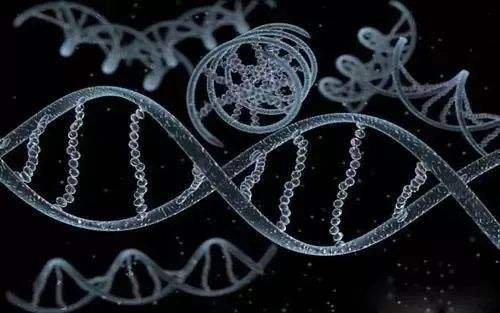(单词翻译:单击)
(Junk DNA does have a use. It is the portion employed in DNA fingerprinting. Its practicality for this purpose was discovered accidentally by Alec Jeffreys, a scientist at the University of Leicester in England. In 1986 Jeffreys was studying DNA sequences for genetic markers associated with heritable diseases when he was approached by the police and asked if he could help connect a suspect to two murders. He realized his technique ought to work perfectly for solving criminal cases — and so it proved. A young baker with the improbable name of Colin Pitchfork was sentenced to two life terms in prison for the murders.) Most of your DNA, in other words, is not devoted to you but to itself: you are a machine for reproducing it, not it for you. Life, you will recall, just wants to be, and DNA is what makes it so.
(注:垃圾(Junk)DNA其实有个用处。有一部分在DNA指纹鉴定中派得上用场。它的这种用途是英国莱斯特大学的科学家亚历克·查弗里偶然发现的。1986年,查弗里正在研究与一种遗传性病症有关的基因链上的基因标志,突然有一位警察来找他,问他能否查出某个嫌疑人是否杀死两人的凶犯。他意识到他的技术能够在破案中得到很好的运用——这很快得到了验证。一个有着很怪异名字的年轻面包师科林·皮奇福克被证实是真正的凶手并被判处了无期徒刑。)换句话说,你的DNA中的绝大多数并不为你服务,而是服务自己:你是为它效力的机器,而不是相反。你会回忆起,生命只想活着,而根本就在DNA身上。
Even when DNA includes instructions for making genes — when it codes for them, as scientists put it — it is not necessarily with the smooth functioning of the organism in mind. One of the commonest genes we have is for a protein called reverse transcriptase, which has no known beneficial function in human beings at all. The one thing itdoes do is make it possible for retroviruses, such as the AIDS virus, to slip unnoticed into the human system.
即使DNA包含制造基因的指令——一即科学家们所说的为基因编制密码,其目的也并不一定是为了维持有机体功能的正常运转。我们体内有一种最为常见的基因——一种被称为逆转录酶的蛋白质,据知它在人体内根本不起任何好作用。它所做的一件事就是使诸如艾滋病病毒的逆转录酶病毒神不知鬼不觉地溜进人体系统中。
In other words, our bodies devote considerable energies to producing a protein that does nothing that is beneficial and sometimes clobbers us. Our bodies have no choice but to do so because the genes order it. We are vessels for their whims.
换句话说,我们的身体花了很多能量来制造一种蛋白质,这种蛋白质没有任何益处,有时反而会给我们带来致命的一击。我们的身体不得不这样做,因为基因发出了指令。我们是它们横行霸道的地方。


